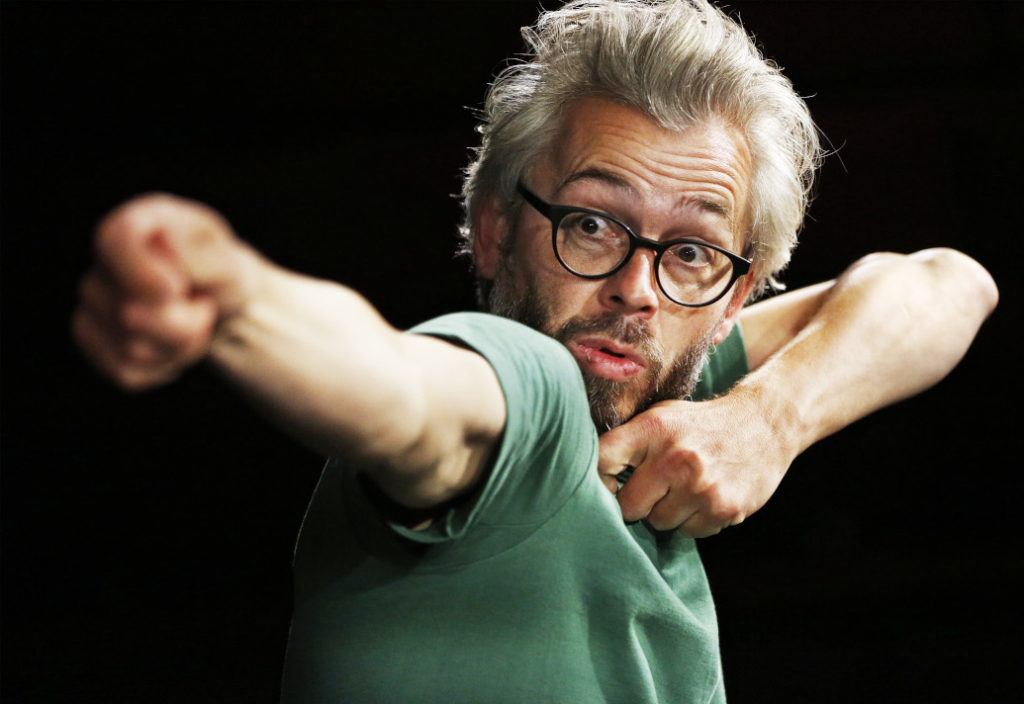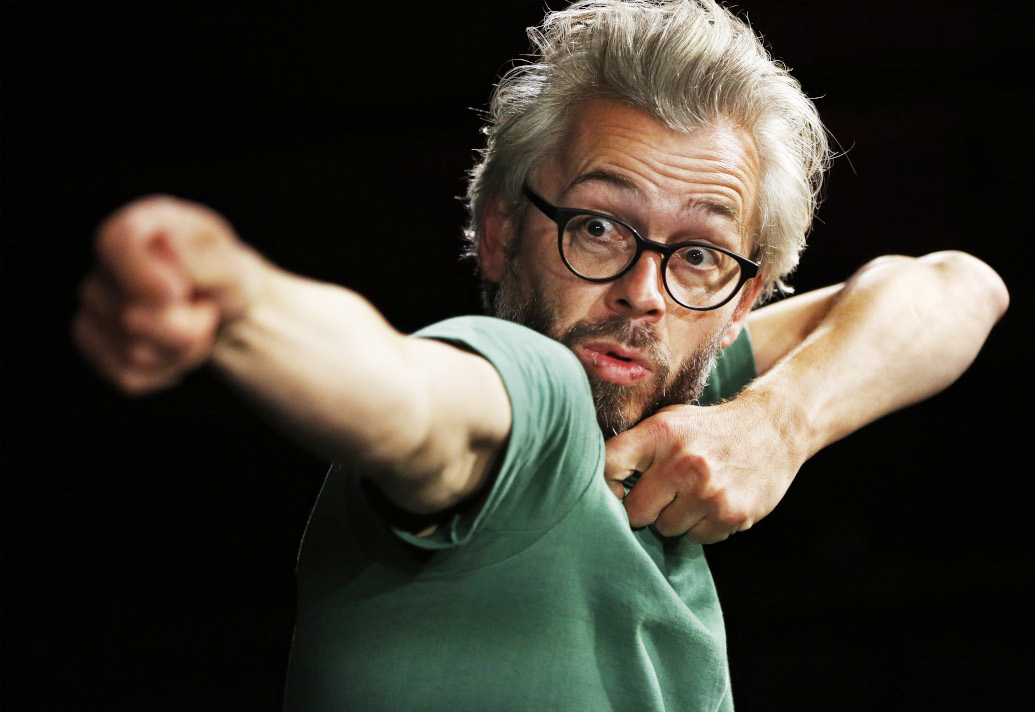
‘Who is going to look after the poor, now that Robin Hood is dead?’ Writer-performer Shôn Dale-Jones seeks to find an answer to that question in this highly inventive and original one-man show. Affable, informal and eager to please, his style of story-telling initially seems very straightforward. He paces around an entirely bare stage, and he uses no lighting effects or props. After a few friendly words of welcome he tells us that throughout the world there are 100 million children living on the street. His theme, clearly, is social injustice, but this is no conventional agitprop rant. Leaving that appalling statistic about homeless kids hanging in the air, he embarks upon a seemingly innocuous personal anecdote. His story initially appears to be nothing much out of the ordinary, but it then segues into something more complex and multi-layered. In stream-of-consciousness fashion he switches back and forth from present to past, and from fact to fiction. He recalls episodes from his childhood in North Wales, bringing back to life his aspirational father, a self-improved businessman eager to teach his son the merits of competitiveness and individualism. We learn that such Thatcherite views were an anathema to his grandmother, a woman with a profound sense of community. But this very down-to-earth tale of domestic disagreement is interweaved with passages of wild fancy, and the border between reality and imagination becomes blurred. There is an exciting episode of Robin Hood-like criminality that may, or may not, have some basis in truth. He teases us into questioning just how much of his tale is ‘real’. Does it matter if it’s not?
Though the mood is generally comic, there are times when Dale-Jones explodes into near-inarticulate rage. One moment he is joyfully sharing with us the memory of winning a junior football match, and the next he is crying out about the appalling inequalities of opportunity that condemn so many to a life of poverty. His anger is not always directed at others; there are times when he confronts inner demons. He is not afraid to wear his heart on his sleeve, and Me & Robin Hood frequently packs a powerful emotional punch. Dale-Jones has benefitted from having been given educational advantages that were denied to others, and there are very moving sequences when he seeks to come to terms with some deep-seated, residual guilt. Upward social mobility comes at a price. Dale-Jones is a passionate crusader against poverty and injustice, but he is no pious saint, ruefully confessing, ‘I have sometimes spent £7 on moisturiser.’ He knows that telling stories can be a way of exposing unpleasant truths, so a narrative like Me & Robin Hood may be thought to be commendably honest. But such narratives can also be seen as a somewhat self-comforting alternative to direct, radical action. That’s a conundrum that Dale-Jones leaves us to ponder.
Me & Robin Hood is part of the Loose Change Trilogy of plays produced by Hoipolloi, whose aim is to ‘inspire social action in audiences’. That’s an admirable goal, and Me & Robin Hood certainly succeeds in being both entertaining and inspiring. Dale-Jones is a very gifted, award-winning storyteller, who deserves a larger audience than he had at last night’s show. Catch him if you can. ★★★★☆ Mike Whitton 3rd October 2019


